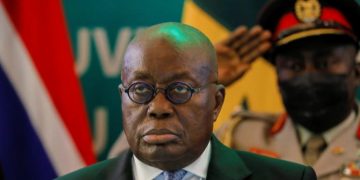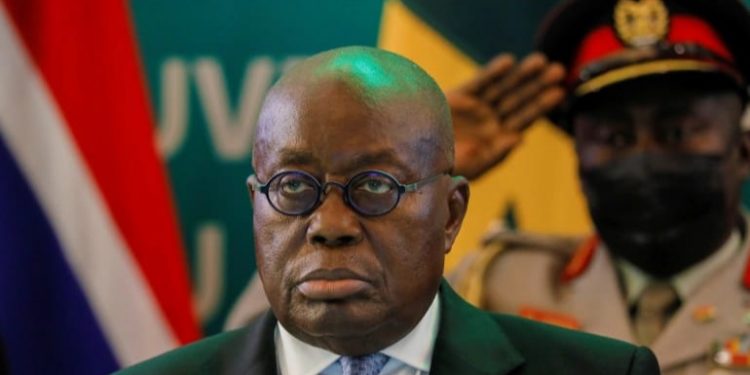By Enyichukwu Enemanna
Ghana’s President Nana Akufo-Addo has demanded increased funding to address issues caused by climate change on the African continent, saying Western nations have not demonstrated commitment in the fight against climate change effects.
Akufo-Addo who is on a six-day visit to France where he is expected to meet President Emmanuel Macron, was referring to commitments made during a climate summit in Rotterdam last September – $23m from the United Kingdom, $15m from Norway, $10m from France and $7m from Denmark.
“$55m for 54 countries – this is not fair,” Akufo-Addo was quoted as saying by French state broadcaster RFI on Monday.
“The adaptation summit had the mission of mobilising $25bn by 2025 … ridiculously, while the G20 countries are responsible for 80 percent of emissions, Africa left Rotterdam with pledges of up to $55m,” the Ghanaian leader said.
The African Development Bank pledged an additional $12.5bn to support the cause.
The Rotterdam summit was set up to discuss climate change financing for Africa and took place ahead of the 27th annual summit of the United Nations Climate Change Conference (COP27) to be held this November in Egypt.
It also came on the heels of a warning from the UN climate science panel that extreme weather and rising seas are hitting faster than expected, prompting calls for more money and political will to help people adapt.
The Rotterdam meeting – attended by former UN Secretary-General Ban Ki-moon, UN climate chief Patricia Espinosa and International Monetary Fund head Kristalina Georgieva – heard from representatives of African nations, small island developing states and other climate-vulnerable countries.
Western countries said they will spend about $25bn by 2025 to boost Africa’s efforts to adapt to climate change. Still, their pledges in Rotterdam fell short.
“It is a lot, of course, but it is derisory,” said Akufo-Addo, reminding that G20 countries “are responsible for 80 percent of [gas] emissions”.
For years, African leaders have said the continent is being to made to pay a heavy price by cutting off usage of fossil fuels, despite its low emissions compared with the rest of the world.
In June, just weeks after the G7 pledged to end public financing for foreign fossil-fuel projects by the end of 2022, Nigerien President Mohamed Bazoum said the continent was “being punished”.



































